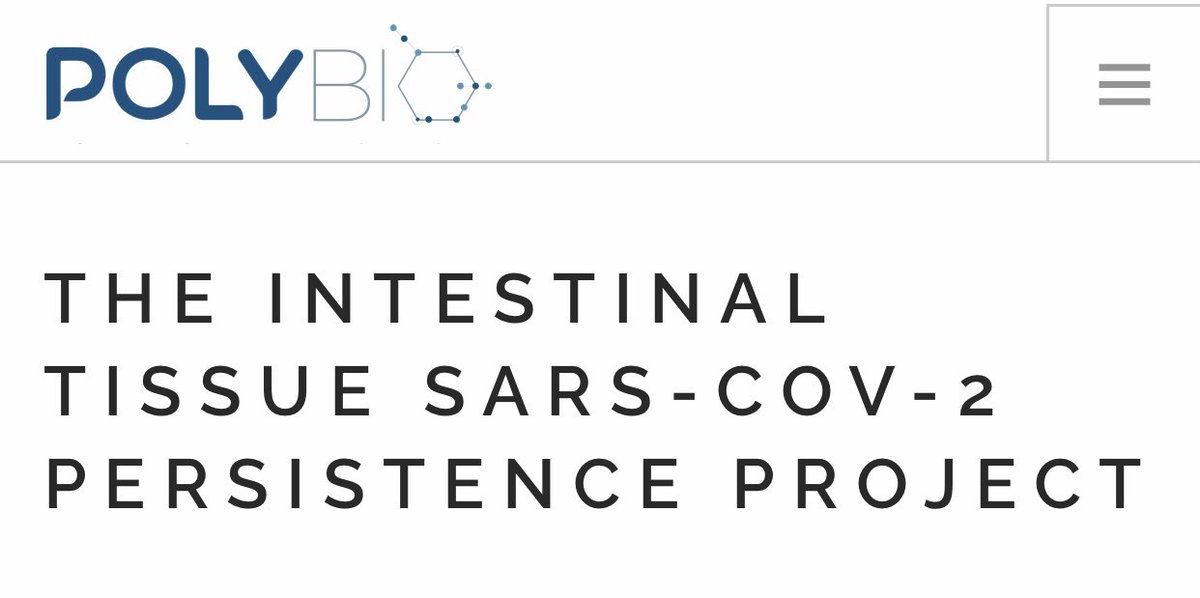PolyBio Research Foundation Receives $1.3 Million Gift to Advance the study of SARS-CoV-2 Viral Persistence in patients with LongCovid
https://polybio.org/portfolio/intestinal-tissue/
(Boston, MA – July 18, 2022) – PolyBio Research Foundation has been gifted $1.3 million to spearhead a collaborative LongCovid research study with scientists from the Icahn School of Medicine at Mount Sinai in New York City and the J. Craig Venter Institute in San Diego. The funding from Balvi, a scientific investment and direct gifting fund for COVID projects, will allow the collaborative team to use innovative technologies to determine if SARS-CoV-2 or its proteins can persist for long periods of time in the gastrointestinal (GI) tract of patients with LongCovid. The study sets the stage for the possible use of antiviral treatments in LongCovid.
https://polybio.org/portfolio/intestinal-tissue/
Last edited by a moderator:

